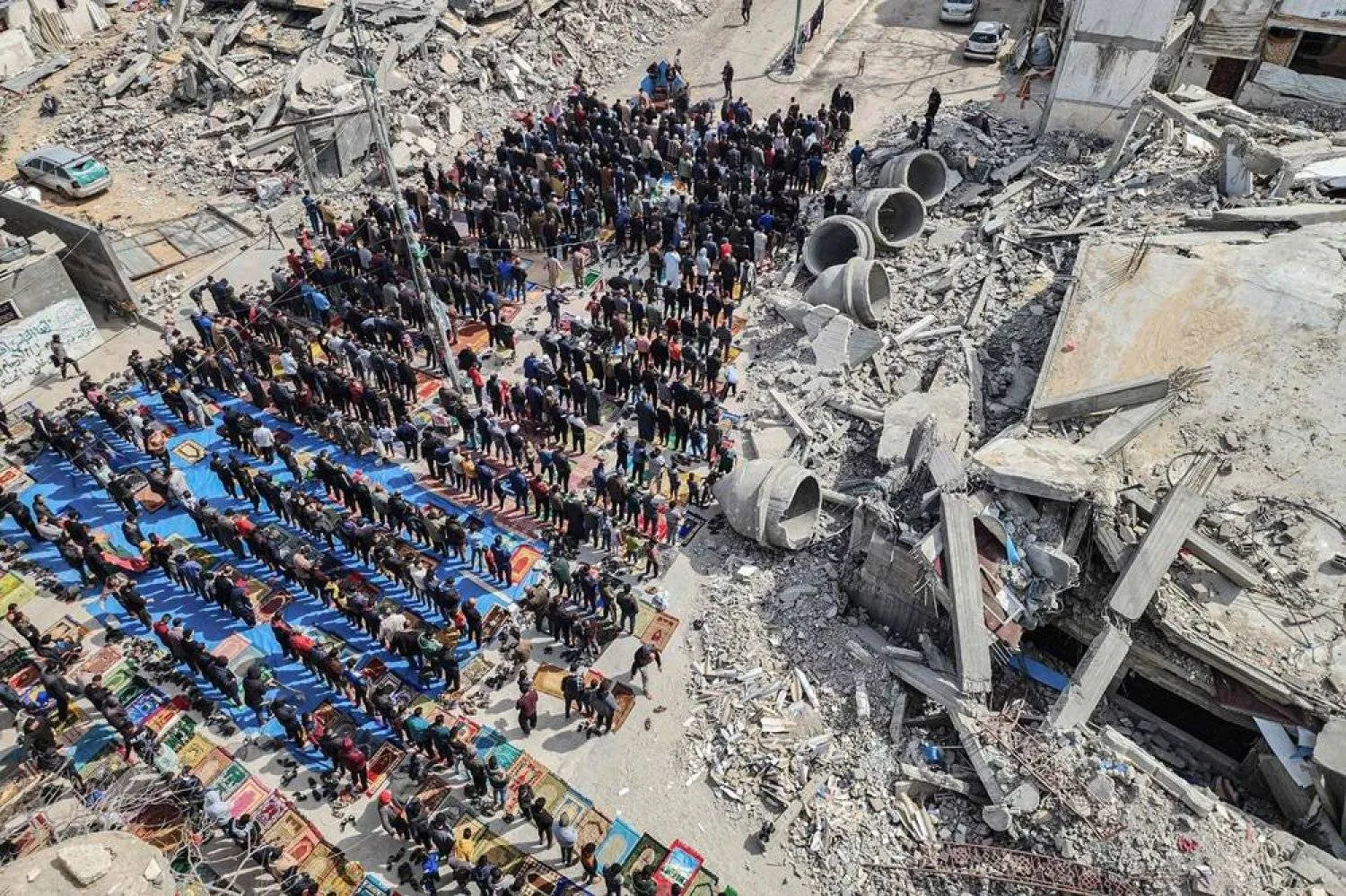Ibrahim Abu Ahmad and Shahd Bishara, both Palestinian citizens of Israel, were finally allowed on Friday to march in Israel's majority Arab north against the war in Gaza.
The demonstration in Shefa Amr was an important step for people who make up over 20 percent of the nation's population, and have felt silenced since war erupted in October.
The relatively small demonstration, with a turnout of barely 100 people including Jews from peace movements, marched under a banner saying "Only peace will bring security".
Watchdog groups had complained that Palestinian citizens of Israel had struggled to get official authorization for anti-war protests, pointing to discrimination.
Following the onset of war, Israel's police chief Kobi Shabtai declared a "zero tolerance" policy for protests in support of Gaza, even threatening to send anti-war demonstrators to the besieged territory.
Shabtai said Israel cannot allow "all sorts of people to come and test us", in a clip posted online.
But on Friday the marchers sang as they walked down the main street of Shefa Amr, a large town planted on a hill in the northern Galilee region that is home to a large portion of Israel's Arab minority.
Their banner was written in Hebrew and Arabic and the demonstrators chanted "Peace, freedom, social justice!", but also "Freedom, freedom for Palestine".
Led by a police car, the parade passed along the Christian cemetery, greeted by the smiles of visibly surprised residents.
Several hundred protesters turned out last week in the northern town of Majd-al-Krum, at the initiative of an Arab organisation to say "Stop the war!", an AFP videographer saw.
In Shefa Amr on Friday, 160 kilometres (100 miles) from where fighting is raging in Gaza, Shahd Bishara was able to express what he called his "solidarity with the people of Gaza".
"Our humanity, our shared humanity cannot accept the humanitarian crisis in Gaza," said the 30-year-old doctor. "And of course, let's not forget the Israeli hostages."
"We couldn't share our solidarity with them because of the oppression and shutting up our mouths," he added.
"We understand the pain of our people, the Palestinians, and the pain of our Israeli friends," Palestinian-Israeli peace activist Hyam Tannous said in a speech in Hebrew.
"We are concerned about the future of both peoples," she added, AFP reported.
Ibrahim Abu Ahmad, 31, said: "We are the solution to the conflict. People have not realised this so far. We are the only ones who are both Palestinians and Israelis."
He calls himself "Israeli Palestinian", and refuses the expression "Israeli Arab" used in Israel, a term that "eliminates a crucial element of who we are".
"The problem is currently that the term Palestinian is portrayed as a political statement not as peoplehood," he added.
Despite marchers getting authorisation to take to the streets, watchdogs cautioned over troubling pressure on Palestinian citizens of Israel.
Arab non-profit group "Mossawa" -- which means equality in Arabic -- reported an increase in human rights violations since the war: arrests, discrimination at work and harassment at school as well as prohibited demonstrations.
Mossawa director, Jafar Farah, said cases have shown signs of declining, after the NGO recorded around 20 arrests per day in the early weeks after the war started.
It is now far less, he said, although full statistics weren't immediately available.
Abu Ahmad, a marcher, said: "It's a huge statement for us that Arabs and Jews do want to live together in this land, and we need to show this on the ground."









